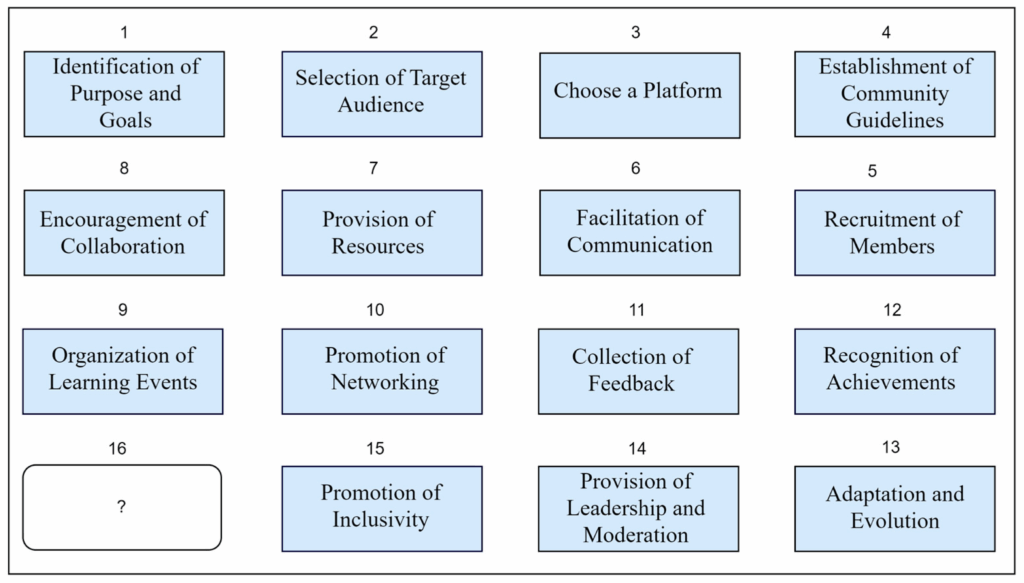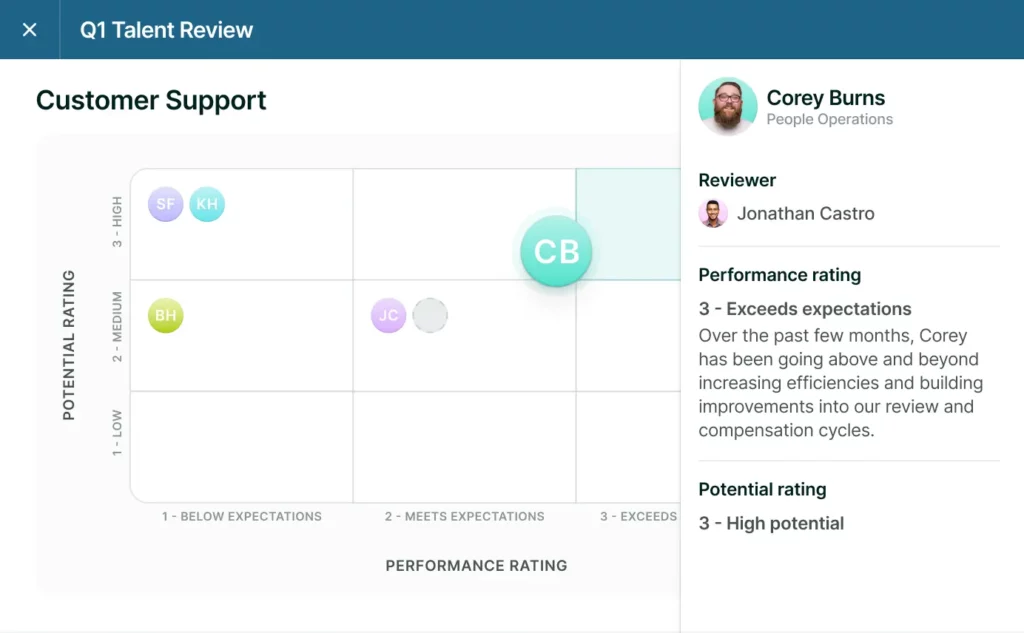Performance appraisals are a crucial mechanism to ensure that your employees are satisfied. They give your team feedback so they can keep improving their performance and ensure that they understand your decision-making process. There are numerous appraisal techniques that you can employ as a manager.
Incorporating these simple behaviors will make it easy to incorporate performance-based appraisals into your organization.
Table of Contents
The Best Appraisal Techniques
Incorporating these simple behaviors will make it easy to incorporate performance-based appraisals into your organization.
Regular Feedback
Regular feedback is the foundation of performance appraisals. Feedback provides an alternative to traditional annual reviews. Frequent performance reviews establish an always open channel of communication and allow people to continue to grow and develop.
It allows for growth in nimbleness in real-time for their learning. The employees will feel as if they are gaining in their skills and growing in their careers. The feedback is an opportunity to celebrate real-time space for improvement with acknowledgement of success.
By having performance reviews happen more frequently, organizations create a space for employees to feel bolstered in their daily work and recognized for their work.
This process of feedback will help employees make real-time adjustments, which can help develop a more nimble workforce. Regular feedback in the form of conversations allows performance appraisals to be molded into a part of the process of a conversation with ongoing growth and development and provides the environment for success to happen and not as a judgment on failure.
Skill-Based Assessments
In performance evaluations, a focus on skills is critical for a deeper perspective of an employee’s performance. A skill-based evaluation approaches the performance evaluation process from a different perspective than generic evaluations.
A skill-based evaluation will not simply look at whether the employee’s work is satisfactory but will also evaluate how the employee performs the specific skills that are relevant to each employee.
In fact, every organization determines the specific skills that the employee needs to contribute to the organization to develop a successful environment. A skill-based evaluation will provide a more specific evaluation of the evaluation because it is aligned very closely to what it means to be developing employee and organizational success and skills for success.

Skill-based assessment facilitates a more accurate and meaningful evaluation by focusing on abilities directly relevant to job responsibilities. It not only recognizes existing proficiencies but also identifies areas where skill development is beneficial.
Clear Communication and Objectives
In performance appraisals it is essential to have clear communication and clear objectives. With clear communication, there’s little room for misunderstandings. Clear communication also develops an environment for conversation and discussion between managers and employees. Clear objectives engage employees, align individual goals with organizational objectives, and illustrate a path forward from their last appraisal.
Furthermore, a performance appraisal process that incorporates clear communication and clear objectives establishes a structure that allows both the growth of the employee as well as the help of the overall organization.
Avoid Biases
Eliminating bias in performance appraisals is important to ensure a fair process and accurate evaluation or rating. Start by providing specific and measurable criteria to evaluate an employee’s performance rather than vague and subjective wording. Use the same way of evaluating across all of the employees to guarantee uniformity and eliminate favoritism.
Motivate diversity by following up with many viewpoints (feedback) from others, such as from coworkers and even subordinates. Training managers not only on unconscious bias but also on developing self-awareness helps to eliminate bias that perhaps was not intended.

Conduct an annual review of evaluation processes to discover and correct any identified biases that may arise. If an unbiased and objective appraisal process is promoted, organizations will ultimately create an environment of fairness and equitable treatment to facilitate development and success for the organization.
Tangible Rewards
Adding material rewards, such as bonuses or vacation days, will drive performance because it provides an objective recognition of outstanding performance and also ties the results of the employee’s individual achievement to the broader organizational strategy.
The tactical use of material rewards establishes a positive reinforcement mechanism where the employee is motivated to always improve their own performance. Fairness and transparency when delivering material rewards are paramount, and, to ensure fairness, the material rewards need to be explicitly linked to measurable and objective performance measures.
The Benefits of Performance-Based Appraisal
Performance-based appraisal is one of the best ways to motivate your employees. This technique can have far-reaching positive effects on your team.
Performance Development
Performance development is a consistently ongoing process involving the development of the skills and abilities of the employee so as to achieve an improvement in performance. It focuses on identifying strengths and opportunities for development, and through constructive feedback, goal planning, and improvement strategies, it provides opportunities for skills to develop.
A successful performance development plan enhances an individual’s growth, aligns with organizational goals, and establishes a culture of lifelong learning.
Goal Interrelation
Goal interrelation, or goal alignment for simplicity’s sake, ensures that personal objectives fit—by design! Seamlessly into broader organizational goals, and further, directing each person’s efforts toward a similar purpose. There is a distinct and obvious connection between what an employee contributes to the organization and how it impacts the organization’s performance.
It is truly remarkable how effectively goal alignment can instill a culture of collaboration and commitment amongst employees. When individuals are committed to achieving shared goals, they will work collaboratively and utilize each other’s strengths to contribute meaningfully to the same outcome.
Motivation
Motivation is necessary in the workplace. Motivation is what drives employee engagement and productivity. Motivation can be driven in many ways—positively recognizing and rewarding achievement, a workplace conducive to positive experiences, and providing employees with growth opportunities.
Decisions made in any and all of these areas can motivate employees to be increasingly committed, invested in innovation, and work collaboratively towards achieving individual and organizational goals.
Talent Development
Talent development is a methodical approach to developing and/or better utilizing the ability and skill set of employees in the workplace. The process of talent development calls on organizations to recognize and tap into individual potential through learning, mentoring, and training.

The complicated world of performance appraisals burgeons with possibilities. The challenge, however, is that once you have identified all of the significant ‘stuff’ that needs to be taken seriously and ‘considered,’ simplicity must be used as a very straightforward guiding principle.
When you start practicing these best practices, keep in mind the power of doing it simply! A well-done performance appraisal process is not simply another task to complete—it becomes a force for good that drives a culture of continuous improvement and success. Here’s to the effortless & effective appraisals that drive performance at the individual level and organizational level!
Have a vision for your business? Let us help you get started! At EvolveDash, we’re passionate about helping businesses grow and evolve in the digital world. Our team is here to help every step of the way, from developing custom mobile apps to creating personalized websites.
FAQs
- What is the purpose of performance appraisals?
Performance appraisals help employees understand their progress, receive feedback, and align their goals with the company’s objectives.
- How often should performance reviews be conducted?
While annual reviews are common, regular feedback sessions throughout the year lead to better employee engagement and performance.
- What are the key elements of an effective performance appraisal?
Clear communication, skill-based assessments, unbiased evaluations, and tangible rewards are essential for a fair and motivating appraisal process.



















